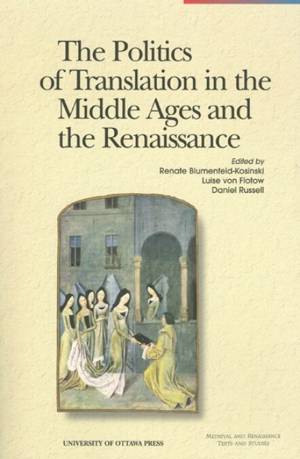
- Afhalen na 1 uur in een winkel met voorraad
- Gratis thuislevering in België vanaf € 30
- Ruim aanbod met 7 miljoen producten
- Afhalen na 1 uur in een winkel met voorraad
- Gratis thuislevering in België vanaf € 30
- Ruim aanbod met 7 miljoen producten
Zoeken
The Politics of Translation in the Middle Ages and the Renaissance E-BOOK
€ 8,49
+ 8 punten
Omschrijving
The articles in this collection focus on politics in the widest sense and its influence and visibility in translations from the early Middle Ages to the late Renaissance. The articles in this collection, written by medievalists and Renaissance scholars, are part of the recent "cultural turn" in translation studies, which approaches translation as an activity that is powerfully affected by its socio-political context and the demands of the translating culture. The links made between culture, politics, and translation in these texts highlight the impact of ideological and political forces on cultural transfer in early European thought. While the personalities of powerful thinkers and translators such as Erasmus, Etienne Dolet, Montaigne, and Leo Africanus play into these texts, historical events and intellectual fashions are equally important: moments such as the Hundred Years War, whose events were partially recorded in translation by Jean Froissart; the Political tussles around the issues of lay readers and rewriters of biblical texts; the theological and philosophical shift from scholasticism to Renaissance relativism; or European relations with the Muslim world add to the interest of these articles. Throughout this volume, translation is treated as a form of writing, as the production of text and meaning, carried out in a certain cultural and political ambiance, and for identifiable - though not always stated - reasons. No translation, this collection argues, is an innocent, transparent rendering of the original. Published in English.
Specificaties
Betrokkenen
- Uitgeverij:
Inhoud
- Aantal bladzijden:
- 224
- Taal:
- Engels
- Reeks:
Eigenschappen
- Productcode (EAN):
- 9780776619750
- Verschijningsdatum:
- 7/03/2001
- Uitvoering:
- E-book
- Formaat:

Alleen bij Standaard Boekhandel
+ 8 punten op je klantenkaart van Standaard Boekhandel
Beoordelingen
We publiceren alleen reviews die voldoen aan de voorwaarden voor reviews. Bekijk onze voorwaarden voor reviews.







